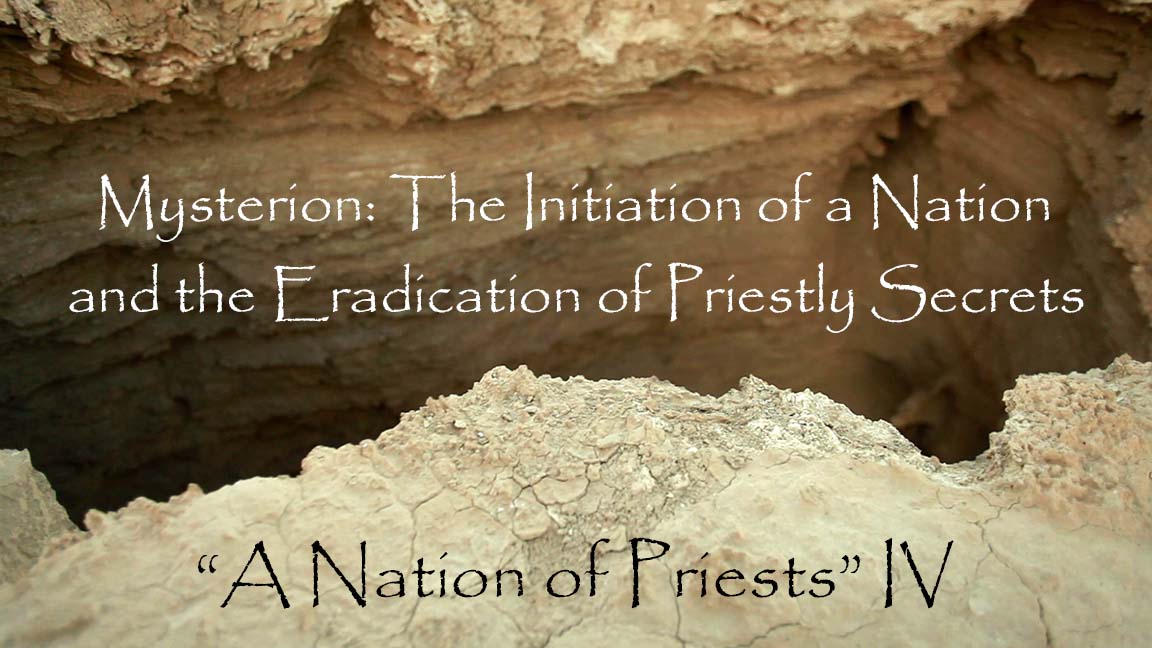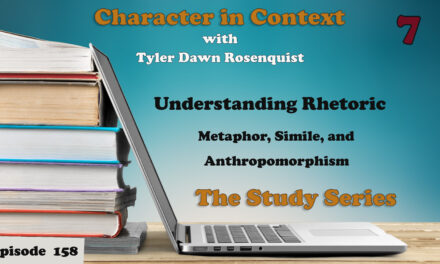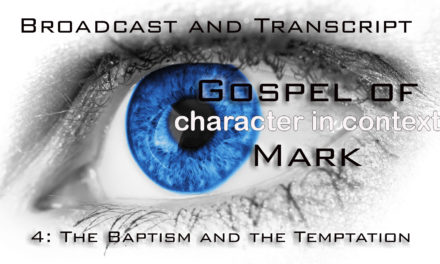Isaiah and the Messiah part 6–Cyrus the Messiah
Yes, the Bible calls a pagan king a Messiah and how Israel responds to him is a foreshadowing of how they will respond to Yeshua/Jesus the Messiah. Exciting stuff!
Here are the two responsible online articles I referenced https://www.ancient.eu/Cyrus_the_Great/ and https://www.britannica.com/biography/Cyrus-the-Great
****************
As always, I didn’t go to a whole heck of a lot of trouble to edit the transcript–so you will find errors. Consider it a growth opportunity 😉
Hey there, here we are in part seven of this series on Isaiah and the Messiah and this week we are going to delve into some serious history and talk about King Cyrus the Great, who is actually named in Scripture and also, called moschia—Messiah, anointed—even though he is an affont to the Jewish exiles living in Babylon as we will see. In some ways, this pagan King is a picture of the coming deliverer who would also be an affront to Jewish leadership in the first century who will also very much be living life as exiles in their own Land but under Roman oppression.
Up until this point, Isaiah chapters 40-44:22, Yahweh has been battling the polytheistic world view that has swallowed up His people not only while they have been in exile, but also during the centuries before. We will see that theme throughout what is known as Deutero-Isaiah, or Second Isaiah, but this week will be very different than what we have talked about over the course of the last six weeks.
Hi, I am Tyler Dawn Rosenquist and welcome to Character in Context, where I teach the historical and ancient sociological context of Scripture with an eye to developing the character of Messiah. If you prefer written material, I have five years’ worth of blogs at theancientbridge.com as well as my six books available on amazon—including a four-volume curriculum series dedicated to teaching Scriptural context in a way that even kids can understand it, called Context for Kids—and I have two video channels on YouTube with free Bible teachings for both adults and kids. You can find the link for those on my website. Past broadcasts of this program can be found at characterincontext.podbean.com and transcripts can be had for most broadcasts at theancientbridge.com.
I will be quoting from the ESV, the English Standard Version because that’s the version that my interlinear is in. Plus, I like it. I have also added a few more books to this study that I forgot to mention in past weeks—you can find the full resource list on theancientbridge.com in the transcript I provided for Isaiah and the Messiah part one. I added Ben Witherington III’s Isaiah Old and New and that is where I pull a lot of my references for the literary types we see in Deutero-Isaiah, he’s a great scholar, and this week I am adding J. Alec Motyer’s Isaiah: An Introduction and Commentary.
As we have gone through this section of Isaiah, week by week and verse by verse, we keep getting this important reminder of the importance of knowing the audience being spoken to because, although all of this is FOR the exiles, many of the words within the passages are directed TOWARD others. Sometimes angelic messengers, divine council members, some of it toward the prophet and some directed back at Yahweh Himself. Other words are spoken to the heathen nations, and today we get to a section largely spoken to a very particular man. And that will be important to keep in mind because sometimes people take what is being said entirely out of context as if the remarks are being spoken to believers and not just spoken within their hearing. Quite a bit of this week’s passage comes across as an overheard conversation.
23 Sing, O heavens, for the Lord has done it; shout, O depths of the earth;
break forth into singing, O mountains, O forest, and every tree in it!
For the Lord has redeemed Jacob, and will be glorified in Israel.
We start out right here with a doxology. And I am going to read from the Merriam Webster dictionary to define that for you: a usually liturgical expression of praise to God. Doxology passed into English from Medieval Latin doxologia, which in turn comes from the Greek term doxa, meaning “opinion” or “glory,” and the suffix -logia, which refers to oral or written expression. It’s logical enough, therefore, that “doxology” has referred to an oral expression of praise and glorification since it first appeared in English around 1645. The word ultimately derives from the Greek verb dokein, meaning “to seem” or “to seem good.”
You have probably sung, “Praise God from whom all blessings flow” at the end of services about a zillion times. That’s a doxology. It’s liturgical, so it has a set form. Same with this in Isaiah, it adheres to the set format in Scripture for this sort of praise. They have the same sound to them throughout Scripture and they say much the same thing in the same way. The Bible is chock full of liturgy and if you have ever read a siddur, a Jewish prayer book, you will see it is largely pulling from the doxological sections of Scripture.
Why this doxology? Well, the verses immediately before this section very literally demand praise because Yahweh has announced that even though they show zero signs of repentance in exile and are not taking responsibility for their sins, He is going to forgive not only their unintentional, chattat, sins but also their pesha, willful transgressions and inviting them to return to relationship with them. It is a stunning and beautiful demonstration of His unmerited grace and favor and a definite cause for praise and celebration.
Now that the earth has erupted in spontaneous praise because of the grace of God, now Yahweh will speak again to His people—but they aren’t going to be enormously thrilled with what He has to say. He gave them the good news first.
24 Thus says the Lord, your Redeemer, who formed you from the womb:
“I am the Lord, who made all things, who alone stretched out the heavens,
who spread out the earth by myself,
Remember the context here—henotheistic Israel who never worshipped Yahweh alone as creator and provider is once more being reminded of Yahweh’s uniqueness. Babylon’s gods, the Canaanite, Hittite, Philistine, and Egyptian gods have had nothing to do with their creation or the creation of anything are not to be feared or depended on or given credit for anything. It is the giving credit part that is important here. He is not saying that He cannot come to earth as a human, or have a Son, or anything like that. This is about Him being completely and solely in control of Israel’s past, present and future fate. What is about to happen cannot, as will be claimed, be attributed to Marduk or any of Cyrus’s gods. Yahweh has to make that crystal clear.
25 who frustrates the signs of liars and makes fools of diviners,
who turns wise men back and makes their knowledge foolish,
None of Babylon’s gods or their priests of prophets were predicting the catastrophe that was about to befall her. It was all, peace, safety and victory and prosperity and all that jazz. No one was suggesting that Babylon would, literally, fall overnight and with barely a shot fired.
26 who confirms the word of his servant and fulfills the counsel of his messengers,
who says of Jerusalem, ‘She shall be inhabited,’ and of the cities of Judah, ‘They shall be built, and I will raise up their ruins’;
Again, in chapters past, Yahweh has been commanding His messengers to cry out to Jerusalem and Mt Zion that it would once more be inhabited and that Yahweh would bring His people back. That they would return, plant and multiply once again and that the Land would no longer be desolate and shamed.
27 who says to the deep, ‘Be dry; I will dry up your rivers’;
This is interesting and this statement is much debated by scholars for a number of reasons. One, when Cyrus began his conquest of Babylon in 539 BCE, it is reported that Cyrus had his men dig 360 canals and diverted the waters of the Diyala river so his armies could cross easily. It could also be another Exodus reference, a reminder of what happened to the Yam Suf. Or, it could be a reference to Yahweh overcoming the primordial forces of chaos or the nation of Babylon could be referred to here in terms of water. Really, I can’t think of anything in Scripture offhand that doesn’t have a number of symbolic meanings. It’s why I hate dream symbolism books because they aren’t generally written by people who have enough Bible knowledge under their belt to really know all the different references—well, and plus, dream language also has to take in an individual’s context. Dreams are highly personal and the same dream might mean entirely different things based on a person’s life experiences. Anyway…
28 who says of Cyrus, ‘He is my shepherd, and he shall fulfill all my purpose’;
saying of Jerusalem, ‘She shall be built,’ and of the temple, ‘Your foundation shall be laid.’”
This is huge, right here. Yahweh calling Cyrus, a pagan conqueror, his shepherd. Remember when Yahweh said, “I am doing a new thing” in Is 43:19? Rescuing Israel via a pagan conqueror is as new as it gets. Israel’s kings were called Yahweh’s shepherds—and a Davidic king is exactly who they were longing for. But another pagan king? This couldn’t possibly be a positive development. How could they be rescued by a pagan? Was he going to convert and come into covenant with Yahweh? And what’s this about the Temple being rebuilt and her foundation laid? This is unprecedented and offensive in the extreme, and insulting to boot. You know, interestingly, Ezra records that all they were about to accomplish during the reign of Cyrus the Great, Cyrus II, was laying the foundation of the Temple. The irony is not to be missed here. Over the last six installments, we have seen Yahweh raking His exiled people over the coals for NOT fulfilling His purposes because of their idolatry and their oppression of one another—but this pagan? Yeah, Yahweh is saying that he will fulfill His purposes to restore Israel. To put it bluntly, the kings of the line of David had betrayed Yahweh and so He was not going to use them to restore Israel militarily.
45 Thus says the Lord to his anointed, to Cyrus, whose right hand I have grasped, to subdue nations before him and to loose the belts of kings, to open doors before him that gates may not be closed:
Ouch, ouch, ouch. That word anointed is—you guessed it—m’shich from the lemma mashaich. That’s the word that generally refers to God’s anointed servants—kings and priests and prophets and all of a sudden here it is applied to a heathen emperor. Talk about a paradigm buster and a game changer. And not only is he referred to with that term, we see that Yahweh is grasping his right hand, just like He does with Israel in Is 41:13, and that in the ancient world is symbolic of friendship. So Yahweh is treating this heathen like a friend and going before him, subduing nations—again we have exodus related language reminiscent of God’s driving out the Canaanites in the Holy Land in the book of Joshua, and opening doors before he gets there and making it so that the gates (the administrative centers) cannot be closed. He is being given both victory and authority to rule over peoples—including the Jews—by Yahweh Himself. Let’s do a quick history lesson on Cyrus here.
I want you to think about what Moses is to Israel and what George Washington is to Americans. That is the exalted and even legendary place that Cyrus holds in the hearts and minds of Persians and by Persians I mean Iranians. To outsiders, Cyrus the Great is generally famous for one reason and one reason alone—he is in the Bible and we know that he sent the Jewish exiles back home from Babylon in the late sixth century BCE. He is great to us for that reason—but to the Persians even today he is the father of their ancient empire and current nation. We know about his early life from the writings of Herodotus, Xenophon and Ctesias—and the accounts are in many areas contradicting one another because of who wrote them and for what purpose. And most of this information can only be classified as legendary, which is unfortunate because the book I used for homeschooling on him was presented as historical when, in fact, it simply chose to believe Herodotus’s very fantastical accounts and presented them as established fact. So, we are going to skip his early childhood and simply talk about how he conquered the “known world” and especially the Babylonian Empire.
I will be referencing two online articles, which I will provide links for on the podcast description. The first is by Daan Nijssen and can be found on Ancient History Encyclopedia. He has a Master’s degree in Babylonian/Assyrian Language and Culture. The other online article is actually from Encyclopedia Brittanica online which I am often very critical of because their articles often contain debunked, unscholarly urban legends—let the reader beware—and are not written by the people who I would have chosen. Like History Channel programs, sheesh—who are their experts, anyway? The EB article was written by Richard Frye, the Aga Khan Professor Emeritus of Iranian Studies from Harvard University, so seriously credentialed there. And he spoke nine languages fluently, plus was able to read several dead ancient Persian languages and his life was married to a prominent Assyrian scholar. Always check the people who are teaching you—or who are teaching the people who teach you. There is a lot of made up source material out there being passed around as fact about the ancient Near Eastern world by Bible teachers with an agenda. Get their sources. Anyone who will not share their sources, just ignore them.
Anyone teaching about Cyrus the Great should be familiar not only with the three Greek historians I mentioned, but also with the Cyrus Cylinder (a building inscription commissioned by Cyrus in order to justify his taking over the Babylonian Empire), the Behistun Inscription (aka the Cuneiform Rosetta Stone), the Nabonidus Cylinder of Sippar (which mentions Belshazzar from Daniel) and the Nabonidus Chronicle, probably composed by the Babylonian priests of Marduk and which chronicles the reign of Cyrus. Although Nabonidus was the last Babylonian king, he was living in self-exile in Arabia and his empire was being mismanaged by his son Belshazzar, mentioned in the Bible.
Cyrus’s conquests spanned a time period of 23 years, beginning with his overthrow of Ecbatana either in 553 or 550 BCE, then his conquest of Lydia sometime between then and the fall of Babylon in 539 BCE. You might ask why we don’t know the years for certain and a big part of the reason is that, historically, they were not calling the year “539 BCE” in their writings. That sort of designation obviously didn’t exist at that point and instead they wrote things like, “In the year of the great earthquake,” or “In the tenth year of Nabonidus” and scholars have had to piece together timelines based on the happenings of events all over the ancient Near East. Obviously, Roman dates and months did not yet exist on a worldwide scale as Rome as a Republic would not exist for another few decades and the Roman Empire wouldn’t exist until the first century BCE. This makes it very difficult, if not impossible, to exactly pinpoint dates in antiquity.
I want you to understand, because it is very important, that Cyrus enjoyed an insane level of success on the battlefield—some stories even claim that whole armies and cities defected to him. Really, compared to the exploits of Nebuchadnezzar, Cyrus walked into country after country with very little resistance—none of the years and years of siege works and terrorizing of local populations. As a result, he was very popular with those whom he conquered. He left their political infrastructure intact, made a big show of worshipping the city gods, made grand improvements to conquered cities and honored local customs. We see none of the Assyrian and Babylonian policies in place of exiling entire peoples to far away lands in order to break them entirely. Cyrus, as we see in Ezra 1:1-4, not only restored peoples to their former lands, but also rebuilt temples and returned their priests to service, returned idols to their native lands, and restored sacred vessels. This caused him to be seen as a friend of the gods. Let’s get back to the text:
2 “I will go before you and level the exalted places, I will break in pieces the doors of bronze
and cut through the bars of iron,
Babylon was reportedly guarded by hundreds of bronze doors, which were thrown open when Cyrus came according to both Xenophon and Herodotus.
3 I will give you the treasures of darkness and the hoards in secret places,
that you may know that it is I, the Lord, the God of Israel, who call you by your name. (reason #1)
This takes the literary form of a royal decree. Calling someone by their name is a giving of vocation, identity, and authority.
As I said, Cyrus was given unprecedented success in battle and came to head the largest empire the world had ever known up to that point. Dwarfing the Babylonian, Assyrian and Egyptian Empires of the past. He ended up controlling everything from modern-day Turkey in the West (the location of the seven churches of Revelation) to modern-day Afghanistan and Pakistan. Until he got his butt kicked by a Sacaean Queen leading an army that was 40% women, not that I am bragging or anything.
Interesting statement here, “that you may know that it is I, the Lord, the God of Israel, who call you by your name.” And out of context, it is easy to say, “Aha! Cyrus became a believer!” but we have to keep on reading. Josephus, the first/second-century Roman Jewish historian suggested that Cyrus had read about himself in Isaiah, which would provide an answer to the dilemma, but we have zero proof. Lots of mysteries in the Word and we just have to know that we will never understand everything!
4 For the sake of my servant Jacob, and Israel my chosen, (reason #2)
I call you by your name, I name you, though you do not know me.
Why is Yahweh taking this new, rash, and shocking action? For Israel’s sake, still His chosen people. “I call you by your name” is repeated, so a second giving of vocation, authority and identity as Yahweh’s chosen agent of deliverance. And remember back in verse 3 when it said “that you may know it is I who call you”? And some folks say he must have become a believer? Well right here in the very next verse it clearly states that Cyrus does not know Yahweh, they are not covenant partners.
5 I am the Lord, and there is no other, besides me there is no God;
I equip you, though you do not know me,
In the Cyrus Cylinder, which I mentioned before, Cyrus gives credit for his conquest of Babylon to Marduk, the chief God of Babylon. In it, he claims that King Nabonidus had been neglecting Marduk and so Marduk searched high and low for a worthy successor to shepherd his worshippers. But here, Yahweh is saying that it is He, Himself, alone who is responsible. Cyrus may not accept it, but it is true. Therefore, Israel needs to accept it as well.
6 that people may know, from the rising of the sun and from the west, that there is none besides me; (reason #3)
I am the Lord, and there is no other.
Again, this is in reference to the preceding verse where Cyrus is giving credit, publicly, to Marduk (as well as other gods in the other places he conquered). Yahweh emphatically states that these other gods are irrelevant and powerless and only He is uniquely in charge of the fate of Israel. There is no other for Cyrus to legitimately give credit to for his victories.
So far, in verses 3, 4, and now in 5, Yahweh has given three reasons for what He is doing. (1) “that you may know that it is I, the Lord, the God of Israel, who call you by your name”—which is reminiscent of Pharaoh, who was aware of Yahweh but did not recognize Him as God; (2) “For the sake of my servant Jacob and my chosen Israel;” (3) “that people may know, from the rising of the sun and from the west, that there is none besides me.” Israel will be reformed as a nation after exile—something that has never happened before in the entire history of the world. The world will stand witness to the power and uniqueness of Yahweh to save, deliver and restore. No other God ever had or ever will do such a thing—and no false gods can stop him.
7 I form light and create darkness; I make well-being and create calamity;
I am the Lord, who does all these things.
A lot of translations say, “I make good and evil” but that really doesn’t capture the spirit of the words shalom and ra’. Good and evil makes it sound like God is out there creating evil things, but ra’ in this context really means calamity or trouble, so I like this translation. Another way of putting it would be blessing and curse. Yahweh blesses, and He withdraws blessings. When blessings are withdrawn, and Israel faces consequences (aka normal life outside of God’s generous and gracious protection) bad things happen.
8 “Shower, O heavens, from above, and let the clouds rain down righteousness;
let the earth open, that salvation and righteousness may bear fruit;
let the earth cause them both to sprout; I the Lord have created it.
Here we have another doxology, which again is a liturgical praise. A hymn of praise in a standardized or set form. We see these all throughout Scripture. Yahweh is calling for righteousness in the form of Creation behaving in an ordered and life-giving way.
And then something odd happens here. It’s like we have missed something. We have had this sort of overheard conversation between Yahweh and Cyrus where Cyrus is being commissioned to be Yahweh’s anointed shepherd, His m’shich and then Yahweh turns around and starts chastising Israel as though they are loudly protesting His way of going about their rescue.
9 “Woe to him who strives with him who formed him, a pot among earthen pots!
Does the clay say to him who forms it, ‘What are you making?’ or ‘Your work has no handles’?
“Woe” right here is a threat, no doubt about it. I am the Creator, and you are just ordinary. How dare you protest and question and reject my plans to bring you salvation and restore you back to the Land???!! Compared to Yahweh, they are inanimate objects devoid of life.
10 Woe to him who says to a father, ‘What are you begetting?’
or to a woman, ‘With what are you in labor?’”
Again, only thing time likening their protests to disrespecting parents and frankly, being generally clueless. You are just pots who have no idea how you are even made and children who dare question your parents.
Fascinatingly enough, this will all repeat itself later with Yeshua/Jesus the Messiah of Israel. They didn’t accept Him as God’s chosen agent, His Messiah, either. They rejected the means of their deliverance again. And if we go back further in history, they weren’t too keen on Moses either. And let us not forget the opposition to David outside his own tribe. Today’s celebrated deliverers were once rejected, threatened, and sometimes even killed.
11 Thus says the Lord, the Holy One of Israel, and the one who formed him:
“Ask me of things to come; will you command me concerning my children and the work of my hands?
12 I made the earth and created man on it; it was my hands that stretched out the heavens,
and I commanded all their host.
This is a direct challenge back at them. Yahweh uses six powerful words here to document His position of authority and supremacy not only over them, but also over all of creation. He formed, worked, made, created, stretched and commanded. Not them, all they could do was get themselves exiled and they couldn’t even lift a finger to do anything about it then or ever. Who are they anyway? How dare they question their maker? How dare they do anything but thank Him? Oh, I wish we were any different!
13 I have stirred him up in righteousness, and I will make all his ways level;
he shall build my city and set my exiles free,
not for price or reward,” says the Lord of hosts.
Here is the final word. I have stirred him up. I will make his ways level. He will built Jerusalem. He will send my captives home. And he will do it just because I command him to.
This is a reaffirmation of the calling of Cyrus, it’s a done deal. They frankly need to shut up about it and accept it with gratitude. That’s what He is telling them.
Not only does Cyrus do it for free, but he actually pays for Temple rebuilding out of his own pocket. Let’s look at Ezra 6:1-12
Then Darius the king made a decree, and search was made in Babylonia, in the house of the archives where the documents were stored. 2 And in Ecbatana, the citadel that is in the province of Media, a scroll was found on which this was written: “A record. 3 In the first year of Cyrus the king,
(meaning not the first year Cyrus was a king but the first year that he was King of Babylon)
Cyrus the king issued a decree: Concerning the house of God at Jerusalem, let the house be rebuilt, the place where sacrifices were offered, and let its foundations be retained. Its height shall be sixty cubits and its breadth sixty cubits, 4 with three layers of great stones and one layer of timber. Let the cost be paid from the royal treasury. 5 And also let the gold and silver vessels of the house of God, which Nebuchadnezzar took out of the temple that is in Jerusalem and brought to Babylon, be restored and brought back to the temple that is in Jerusalem, each to its place. You shall put them in the house of God.”
6 “Now therefore, Tattenai, governor of the province Beyond the River, Shethar-bozenai, and your associates the governors who are in the province Beyond the River, keep away. 7 Let the work on this house of God alone. Let the governor of the Jews and the elders of the Jews rebuild this house of God on its site. 8 Moreover, I make a decree regarding what you shall do for these elders of the Jews for the rebuilding of this house of God. The cost is to be paid to these men in full and without delay from the royal revenue, the tribute of the province from Beyond the River. 9 And whatever is needed—bulls, rams, or sheep for burnt offerings to the God of heaven, wheat, salt, wine, or oil, as the priests at Jerusalem require—let that be given to them day by day without fail, 10 that they may offer pleasing sacrifices to the God of heaven and pray for the life of the king and his sons. 11 Also I make a decree that if anyone alters this edict, a beam shall be pulled out of his house, and he shall be impaled on it, and his house shall be made a dunghill. 12 May the God who has caused his name to dwell there overthrow any king or people who shall put out a hand to alter this, or to destroy this house of God that is in Jerusalem. I Darius make a decree; let it be done with all diligence.”
Darius I was the third real king over the Achaemenid Empire—I am not counting the guy who was king for less than a year. He took the throne eight years after the death of Cyrus. Under Cyrus the foundations were laid—as prophesied by Isaiah—but it wasn’t until the reign of Darius that the Temple was finished.






















Tyler, done it again! This one will take more readings! Thanks for the citations, I’ll check them. Shalom, Sweetie. 💜